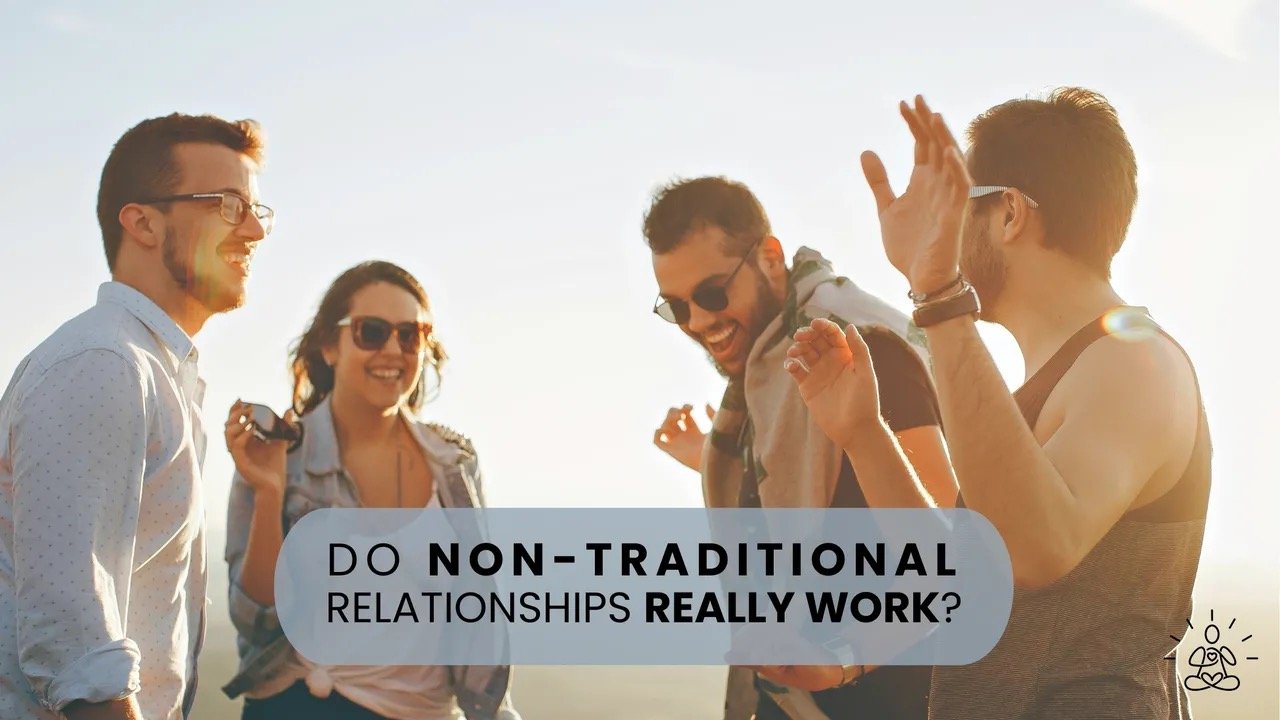Do Non-Traditional Relationships Really Work?
When it comes to relationships, most of us grew up with a pretty standard blueprint: find one person, stick with them forever, and ride off into the sunset. But what if that’s not the only way? Welcome to the world of Ethical Non-Monogamy, where love and commitment don’t necessarily mean exclusivity.
Ethical Non-Monogamy (ENM) refers to relationship structures where individuals engage in multiple consensual romantic or sexual partnerships simultaneously. Now, before you imagine a free-for-all love fest with zero boundaries, let’s clear the air. ENM actually emphasizes honesty, communication, and mutual consent among all parties involved—basically, all the same ingredients that make a healthy monogamous relationship work, just with a different recipe.
What Even Is Ethical Non-Monogamy?
Think of ENM as an umbrella term for relationships where partners agree that exclusivity isn’t required. This can take many forms, including:
Open Relationships – Partners maintain a primary relationship while also having the freedom to pursue sexual connections with others.
Polyamory – Partners engage in multiple romantic relationships simultaneously, with the knowledge and consent of everyone involved.
Swinging – Committed couples consensually engage in sexual activities with others, often in social settings like parties or clubs. This usually involves partners swapping partners, though dynamics can vary.
Relationship Anarchy – Individuals reject traditional relationship norms and hierarchies, allowing relationships to evolve naturally—no predefined rules or societal expectations.
There are many other specific terms within ENM, such as a throuple (a committed romantic relationship between three people) or solo polyamory (where individuals prioritize autonomy while having multiple relationships). These are just a few examples, but the structure and dynamics of ENM vary widely based on the preferences and agreements of those involved.
“But Doesn’t That Mean It’s Just Cheating?”
Nope! That’s one of the biggest misconceptions about ENM. Cheating involves dishonesty and breaking agreed-upon boundaries. ENM is literally the opposite—it’s built on open conversations, trust, and ensuring that everyone involved is enthusiastically on the same page. If someone is sneaking around, hiding partners, or breaking agreements, that’s just plain old cheating, not ethical non-monogamy.
Can These Relationships Actually Work?
Short answer: Yes, absolutely! But (you knew there was a “but,” right?), they require a whole lot of communication, self-awareness, and emotional intelligence. In other words, if you struggle to send a text that says, “Hey, let’s talk,” ENM might be a bit of an uphill battle.
ENM is more common than you might think. A 2016 study found that about 20% of people have engaged in some form of consensual non-monogamy during their lifetime. Interest in ENM is notably higher among younger generations. A 2023 survey revealed that roughly 30% of Americans prefer relationships that are not completely monogamous. But like any relationship style, it’s not a magic fix for happiness.
When ENM Might Not Be a Good Idea
Not every relationship model works for every person, and that’s okay! Here are some scenarios where diving into ENM might not be the best move:
You’re Only Doing It to Keep a Partner – If your heart screams monogamy but you’re agreeing to ENM just to avoid losing someone, you’re setting yourself up for heartache.
You Struggle with Jealousy and Communication – ENM doesn’t mean jealousy vanishes. But if you avoid discussing feelings or need constant reassurance, it might be extra challenging.
You Have Deep Religious or Personal Convictions Against It – If ENM clashes with your religious beliefs or personal convictions, forcing yourself into it won’t make it fulfilling. Living in misalignment with your values will likely lead to inner turmoil and dissatisfaction.
You Think It’s a Shortcut to Fixing a Relationship – If your current relationship is on shaky ground, adding more people into the mix is like trying to fix a leaky boat by drilling more holes.
When ENM Might Be a Great Idea
On the flip side, ENM can work really well if:
You’re Naturally Open to the Idea – If exclusivity has never felt quite right for you, ENM might be a better fit.
You and Your Partner Are Communication Pros – If you can have tough, honest conversations without shutting down or getting defensive, you’re off to a great start.
You Value Independence in Relationships – If your idea of love includes giving your partner (and yourself) freedom without ownership, ENM could be worth exploring.
You Have an Abundance Mindset About Love and Connection – If you see love, affection, and attention as plentiful resources that multiply instead of diminish among multiple people, ENM might be a natural fit.
So, Should You Try It?
The answer depends entirely on what feels right for you. Non-traditional relationships aren’t inherently better or worse than monogamy—they just work for different people. The key is knowing yourself, setting clear boundaries, and making choices based on what brings you genuine fulfillment rather than fear of missing out.
If you’re intrigued, take time to research, talk to people in ENM relationships, and have open discussions with any partners involved. There are plenty of great resources available, from books to online communities. A couple of popular books on the topic include Polysecure by Jessica Fern, and More Than Two by Franklin Veaux and Eve Rickert. These books dive deeper into the philosophy, challenges, and practicalities of non-monogamy.
If you’re interested in more meaningful conversations, tips, or want to ask questions, follow me on Instagram and Threads. Let’s keep the conversation going! Whether you’re monogamous, polyamorous, or still figuring things out, the real question is—what kind of relationship makes you happiest?
by Maria Perdomo-Torres, LCSW-S, MHA, CFSW




